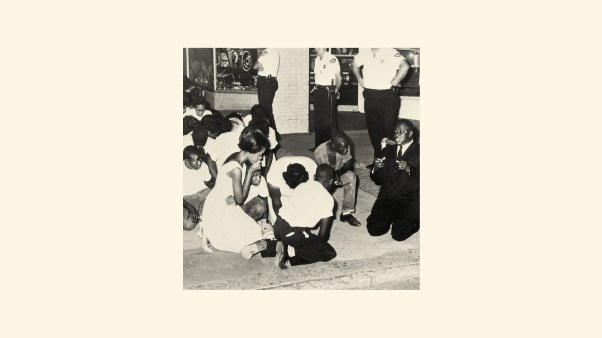Is it possible to turn this bucket of water upside down without spilling any?” our science teacher asked.
We junior highers thought we knew the answer. Nope. Not without a lid.
But when the teacher grabbed the pail by the handle and swung it like a windmill, we saw the bucket upside down at the height of its orbit, and not a drop spilled out. Students, meet centrifugal force.
Last summer I co-taught a D.Min. class of pastors from China, Korea, Australia, the Philippines, and the United States, each student from a different denomination. Yet every one had experienced conflict over worship styles. Some had seen their churches split. Students, meet another kind of centrifugal force.
In this case, the force causes things to fly apart, not stay in the bucket.
Today’s consumer culture threatens to pull our churches apart.
It’s not just worship styles that fragment churches. That’s but one evidence of a larger centrifugal force—today’s consumer culture, with its incessant choices—that threatens to pull our churches apart.
Traditional Christian virtues of obedience and submission have to be reengineered in a culture that provides options for everything from restaurant seating (smoking or nonsmoking) to Bible translations (inclusive language or gender-specific language). Every pastor knows the challenge of ministry in a world in which each individual selects a church (and may choose to leave tomorrow) not only on the basis of doctrine, but also:
- Toward what preaching voice they incline their ear—fellow struggler or confident authority, inspirational or informational, emphasis on unconditional acceptance or emphasis on responsible behavior?
- What social sensibilities are tolerable—wine or Welch’s, egalitarian or male-led, Broadway plays or bowling league, politically active or not so?
- What’s the financial cost of fellowship—retreats at a pricey resort or local college dorm? Do your peers vacation in Cancun or a koa campground?
- Not to mention the traditional issues of doctrine and polity: baptism for infants or for older believers? Decision making by bishop or elders or congregation?
The point? In a consumer culture, options multiply. Catering to personal choices inevitably leads to smaller and smaller “niches.” The more choices, the fewer people who make the same selections. Such individualized pursuit of God becomes our Tower of Babel, isolating us, keeping us from understanding one another.
This centrifugal force destroys Christian community unless an equal and opposite force is also applied. As I learned from the science teacher with the bucket, centripetal force counters centrifugal force, connecting the object to the center. To prevent our congregations from flying apart, church leaders must provide the centripetal force. How?
1. Build Christian community on common interests, not special interests. When we talk about what we believe, we eventually divide. We divide even faster when we talk about what we find stylish, effective, or tasteful. But when we talk about the one in whom we believe, we find Christ draws us together.
2. Focus on kingdom values, not group preferences. Even communities can be selfish, and true koinonia can be lost in pursuing “likemindedness.” Lasting unity is found outside our social orbit, in kingdom-mindedness.
3. Become multi-lingual. After Babel, those who learn to speak more than one language are essential. Disciples recognize the gospel in many expressions—and express the gospel so that many different ears can hear.
Students, meet centripetal force, stronger than the forces of disintegration.
Marshall Shelley is senior editor of Leadership.
Copyright © 1998 by the author or Christianity Today/Leadership Journal. For reprint information call 630-260-6200 or contact us.









